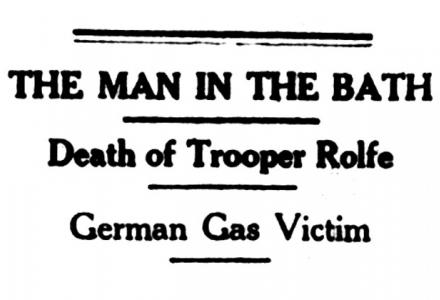In 1915, Madame Crivelli established the French Red Cross Society of Victoria. It was the beginning of an (unpaid) career in war work that would long outlast the war itself. Crivelli organised appeals, officiated over fundraising events, and personally packed a veritable mountain of gifts for France during the war years.
Her society held fetes and dinner parties, organised parades, flower stalls and performances, and embarked on one collecting drive after another. Victorians responded generously and not just with money. Rolls of flannel, reams of paper, cartons of books, razors, scissors, pillow slips, and buttons were bundled together and sent overseas. By 1916, Crivelli had raised enough money in Victoria to equip a ward of forty beds at a hospital outside Paris. And by the end of the war, the Society had raised a staggering £207,233 in funds - the equivalent of several million dollars today.
Even after the fighting had ceased and the French Red Cross Society had closed, Madame Crivelli’s war work continued. Not long after the signing of the Armistice, she established the After-War Relief Society for France. At a time when most war workers were putting aside their collection tins and knitting needles, she rallied again to the cause
It was through her sister that Madame Crivelli learnt of the devastation of Villers-Bretonneux, and knowing of its connection with Victoria, began to seek assistance for the town. Plans were put in place for French Week, a fundraising festival to be held in Melbourne in aid of Villers-Bretonneux. It took place in the last week of August 1921 coinciding with the anniversary of the battle of Amiens. Throughout the city of Melbourne, its suburbs, even in regional Victorian towns fundraising efforts were organised and at the conclusion of French Week, £24,275 had been raised.
In post-war Australia, many hoped for a new epoch of peace and prosperity. The gesture of rebuilding that corner of war-torn France symbolised a faith in new and better world. But the town of Villers-Bretonneux would soon be occupied again.



